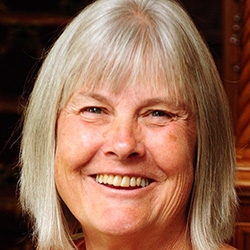
Search Results: anger
-
In our internal conversations, some voices dominate others, which can leave us feeling fragmented or overwhelmed. But when we dive beneath the surface and really listen to our many parts, we connect vulnerably to our full humanity.
-
How do you bring empathy and authenticity to uncomfortable work situations when there are so many layers of difference – especially if your primary reason for working is to feed your family and pay your bills? Listen in as Roxy opens participants' eyes to some of the many layers of difference we all deal with on a daily basis.
-
Join Jim Manske for practice exercises that will help you navigate away from reactivity toward a more compassionate way of being in the world, and learn to express vulnerable honesty (scary honesty)
-
When Anita's sister reveals that the Ku Klux Klan broke into her home and dragged her out into a field towards a burning cross, Anita's commitment to nonviolence is challenged. Here, Miki highlights practices and lessons from her story of inner struggle -- including an insight about how, even in extreme polarization, our freedom and healing is wrapped up in others' freedom and healing.
-
Trainer Tip: To defuse anger and create space for resolution, hear the other person’s feelings and needs. If this practice is new to you, you're like to experience fear and resistance in trying it out. However, you'll be more likely to experience a powerful shift, and build your capacity, if you try it anyways.
-
We can ask for what we want but if we repeatedly don’t get it from one source, it's our responsibility to find a new way to get it. We don’t honor our relationships when we insist that people who are unavailable or unwilling to support us meet our needs. Read on for related a parable about a woman persistently asking to get milk from a hardware store.
-
Trainer Tip: When we feel resentment toward others, we are harming our own emotional health. Surprisingly, when we own up to our part of an uncomfortable situation, we can release the pain and resentment. Such honesty can provide healing. Read on for a related anecdote of how this can play out.
-
Trainer Tip: Empathy is a process in which we acknowledge and understand others' experience without judging or bringing up our own life experience. It can defuse a violent situation and anger in seconds, plus provide a clarity that catapults someone to a deeper level of understanding. The process is simple; listen for their feelings and needs. It can be healing for them to be deeply understood.
-
Trainer Tip: When we express frustration without blaming others and by clarifying our own needs and requests, we diminish the possibility of hurt feelings and separation in our relationships. So next time you feel very agitated or angry, rather than implying the other person is wrong or at fault, try the following: own your feelings, make a specific request, and rather than implying they need to give up their needs focus on your needs.
-
Ask the Trainer: An NVC Academy member from Bosnia asks: "Is the NVC process truly effective in places where so much violence has occurred and people's pain is very deep?"
-
In this compelling interview with Liv Larsson, CNVC Certified Trainer from Sweden, the NVC concept of enemy images — how they develop, what they represent and how they affect our relationships with others and self — is explored.
-
Ask the Trainer: Is it a good idea to use NVC on persistent guilt, anger or depression without the aid of others?
-
CNVC Certified Trainer Miki Kashtan talks with radio show host Hollis Polk about strategies for communicating with family members whose political views oppose our own.
-
In this brief audio snippet, CNVC Certified Trainer and founder of the CNVC Parenting Project, Inbal Kashtan, offers a profound insight that can change how we see and relate to our children.
-
This holiday, shift your focus from what disappoints you to the true whisperings of your heart. Compassion is an inside-outside process. In this telecourse recording, you will experience four simple tools for savoring your own precious needs, allowing you to experience greater compassion and harmony this holiday.
-
CNVC Certified Trainer Miki Kashtan helps a man whose ex-spouse reacted strongly to his attempt at empathizing with her. Miki shows us how it’s possible to hide behind our empathic expression, creating less rather than more connection. She suggests instead that we be vulnerably authentic.
-
CNVC Certified Trainer Miki Kashtan shares how Marshall Rosenberg helped her see how unacknowledged fear can be misinterpreted as aggression and offers an elegant and simple strategy for changing this dynamic.
-
Finding your power in seemingly powerless situations doesn't mean denying what happened, your feelings, your needs, nor the behavior of others that didn't meet needs. It does mean reexamining those situations with the intention to compassionately look for your contribution and for clues to your hidden perceptual biases. Read on to learn about about finding these clues, and more.
-
Trainer Tip: Here are some options for tense moments in conversations: try a "redo", understand and recognize your habits, pause to regroup, empathize with the person so they feel heard, check your mind frame before speaking, and name some appreciations about one another.
-
If we are to transform the existing social order, and shift to a mode of liberation for all, we'll need to look at our own participation in it. This includes how much we are able to focus on keeping our hearts open; speak to impact without attributing intention; and retain a humility that includes our systemic context. Read on for "how to" when we are in a position of less power.


















